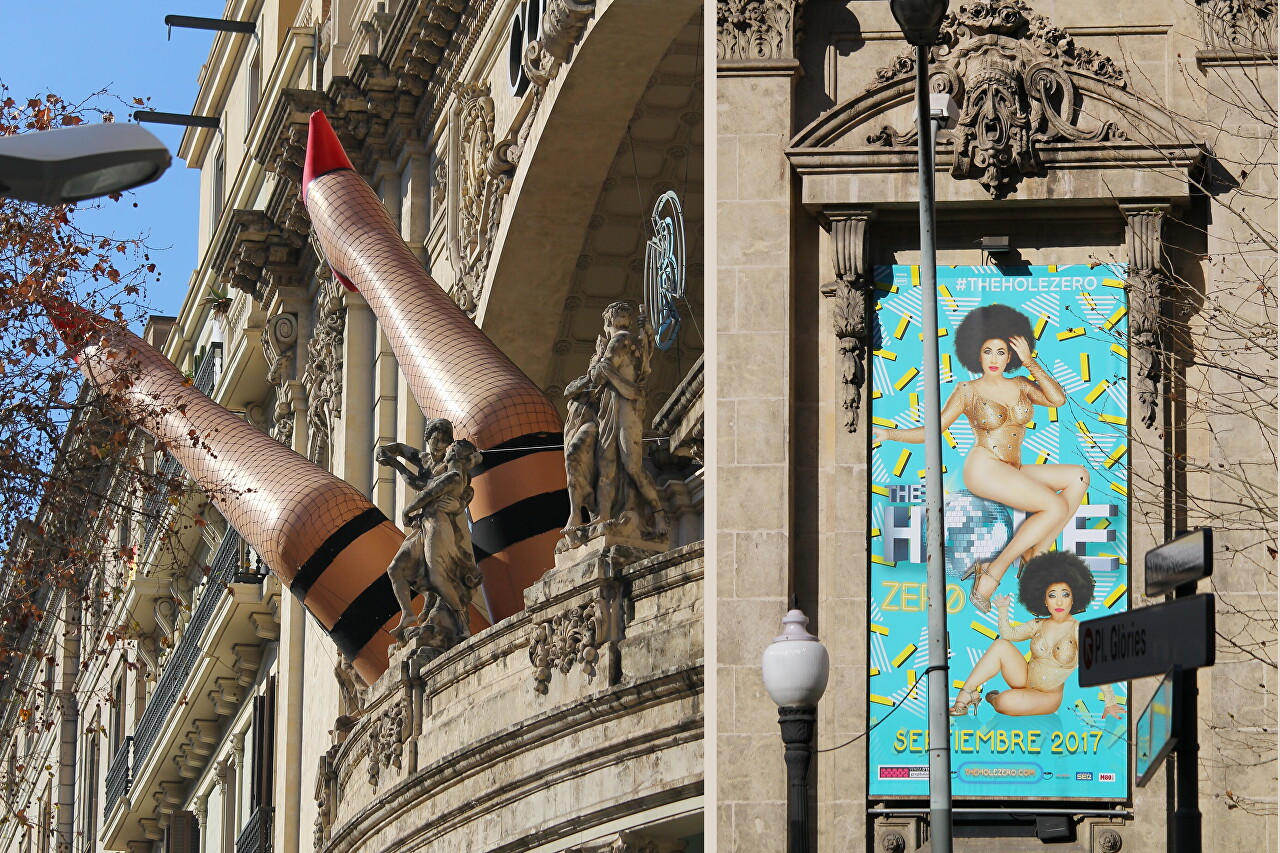Coliseum Cinema
At the intersection of Gran Via and Rambla de Catalunya is the Cinema Coliseum, long the largest in Barcelona. The building belongs to the architectural monuments of the early twentieth century.
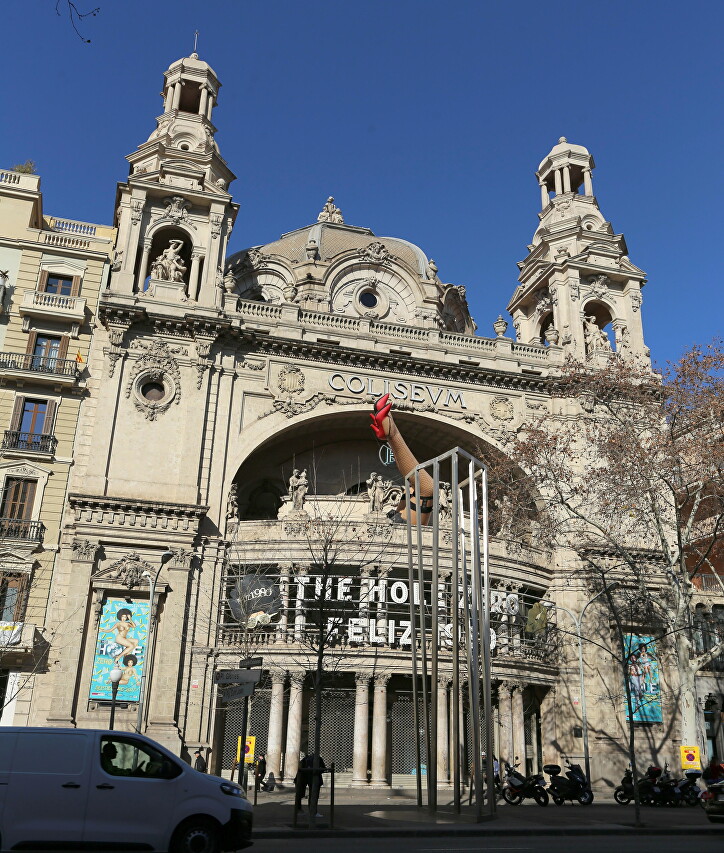
Since 1901, on the site of the "Colosseum" was located a small cinema with the loud name " Palace of Illusions "(Palacio de la Ilusión). In 1913, the illusion was closed and the building was abandoned for a long time (photo http://barcelofilia.blogspot.ru/).
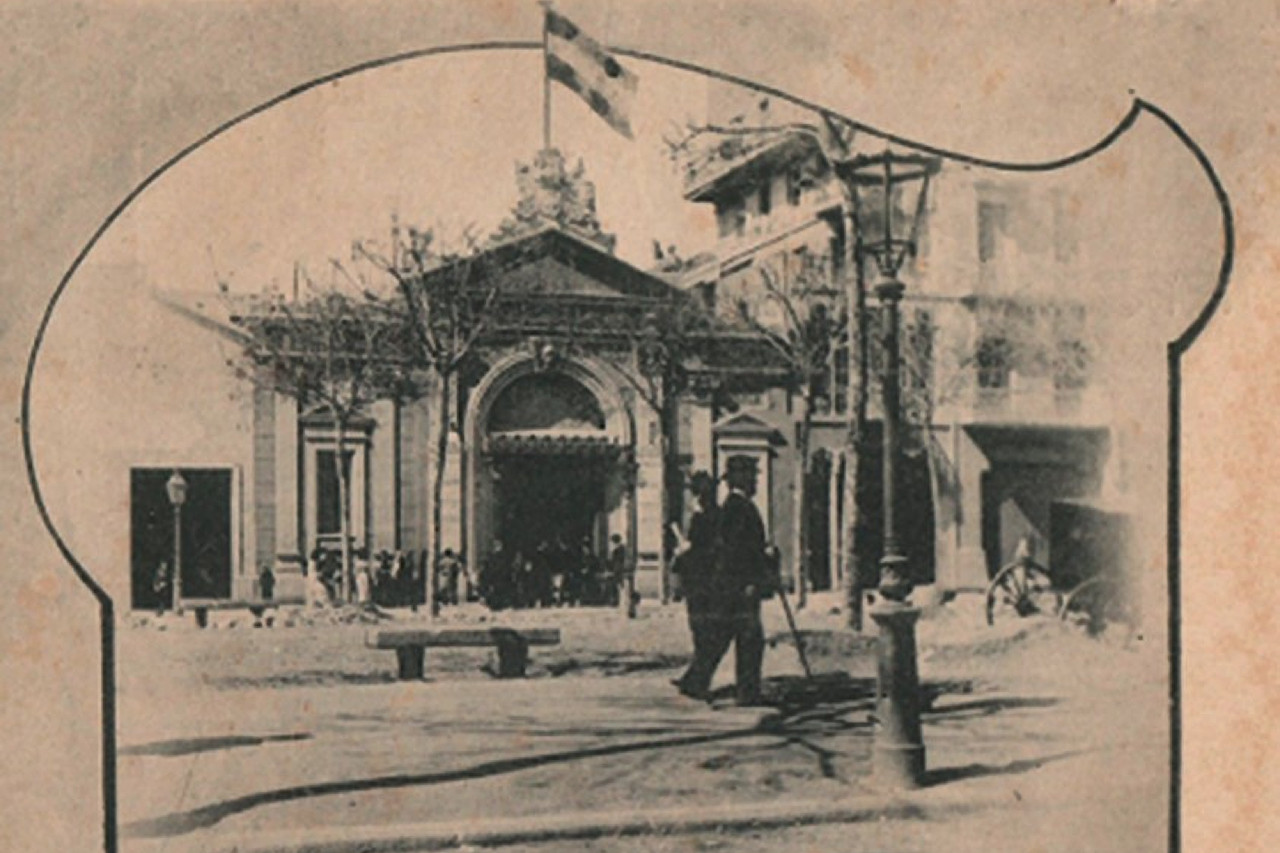
In 1919, the editor of the World of Cinematography magazine, Jose Soloy, put forward the idea that the glib place at the intersection of two main city streets, which was occupied by a former cinema, could be used for the construction of a large "Cinema Palace". The Metropolitan Company took over the project, and on October 10, 1923, the Colosseum was opened. The cinema hall had a capacity of 1,815 spectators, long remaining the largest among Barcelona's cinemas. The building is built in eclectic style by the architect Francesc de Paula Nebot, also known as the author of the modern ensemble Plaza Catalunya. In the appearance of the cinema, you can guess the features of the Parisian Beaux Arts style (fine art). The architect was clearly inspired by Charles Granier's Parisian Grand Oprea.
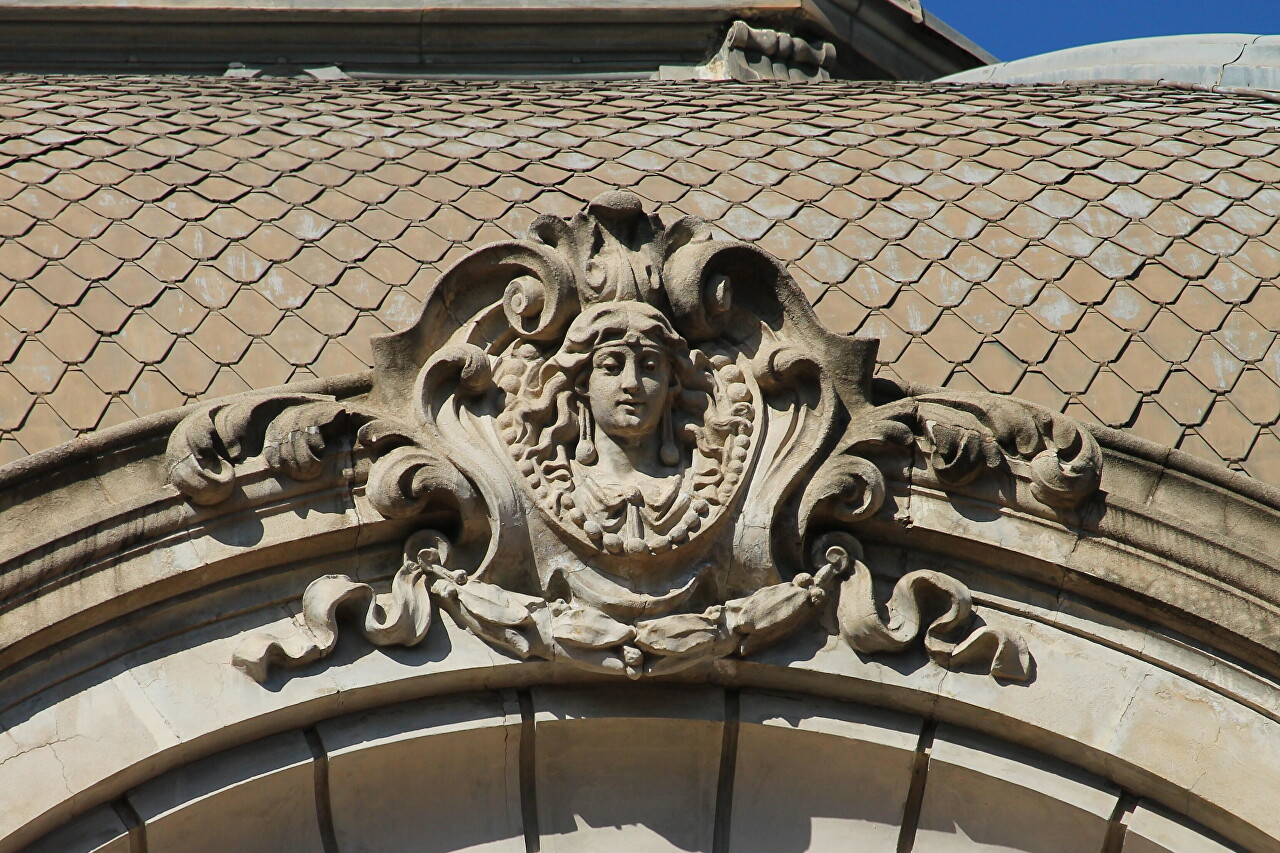
The facade has an entrance atrium, twin Corinthian columns support a semicircular balcony under a wide arch.
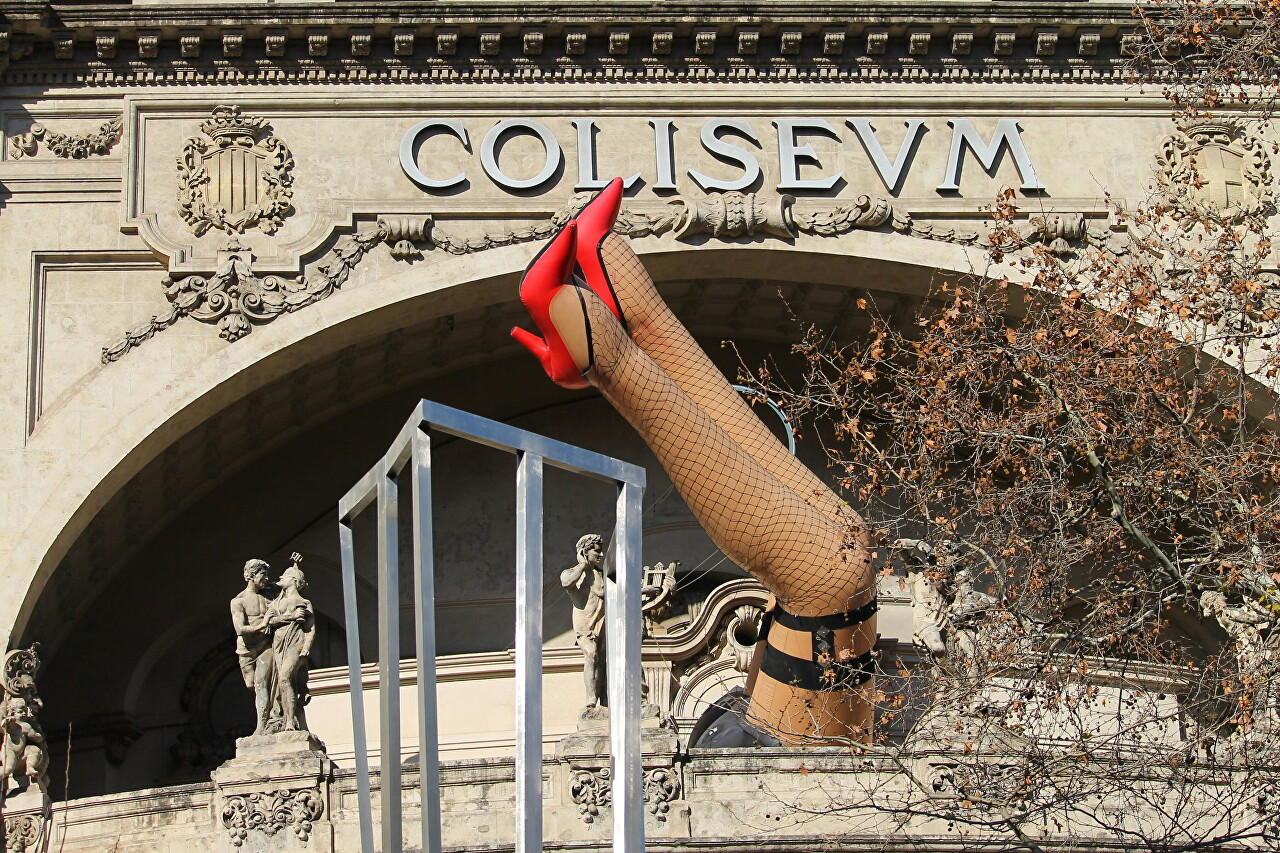
The parapet of the balcony is decorated with sculptures of muses by Pierre Ricart.
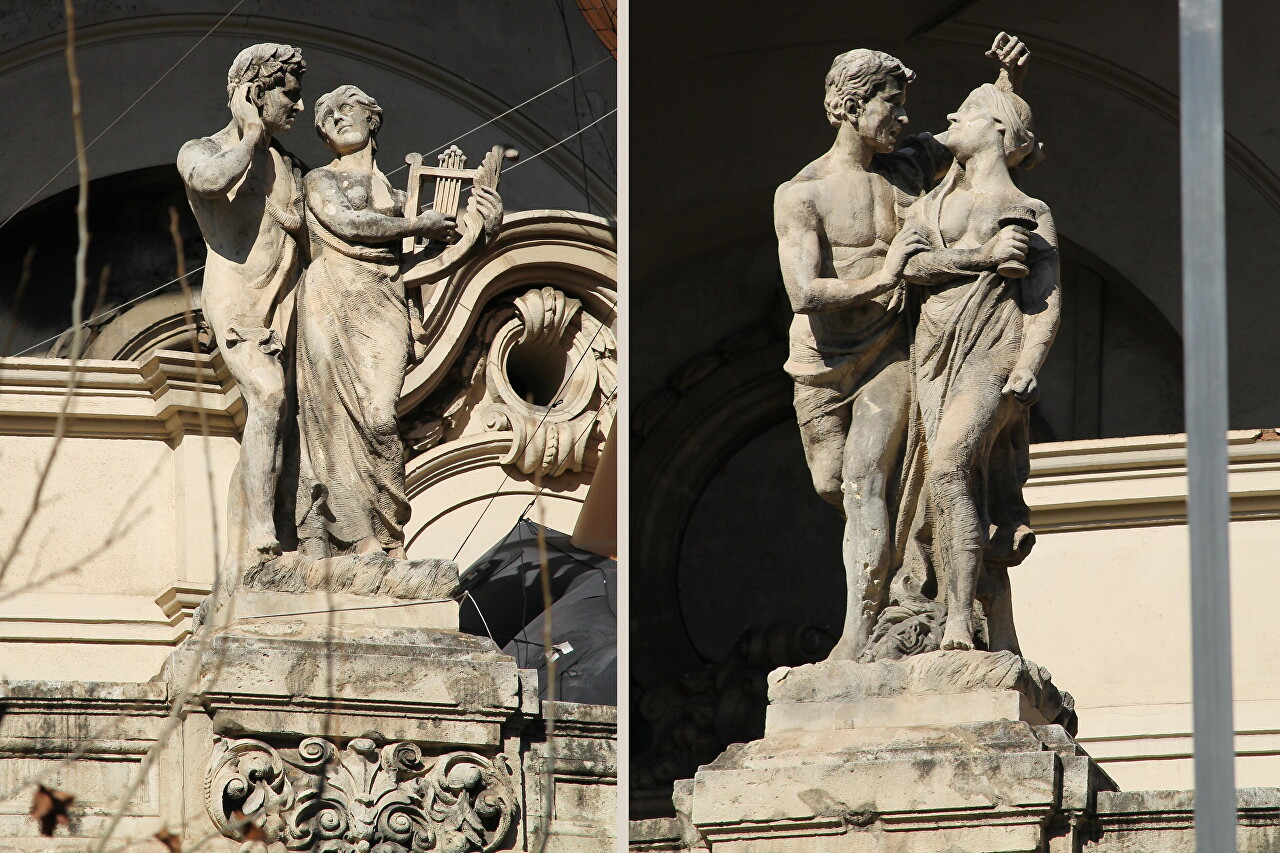
The building is crowned by a large dome designed by engineer Valeri Corbero.
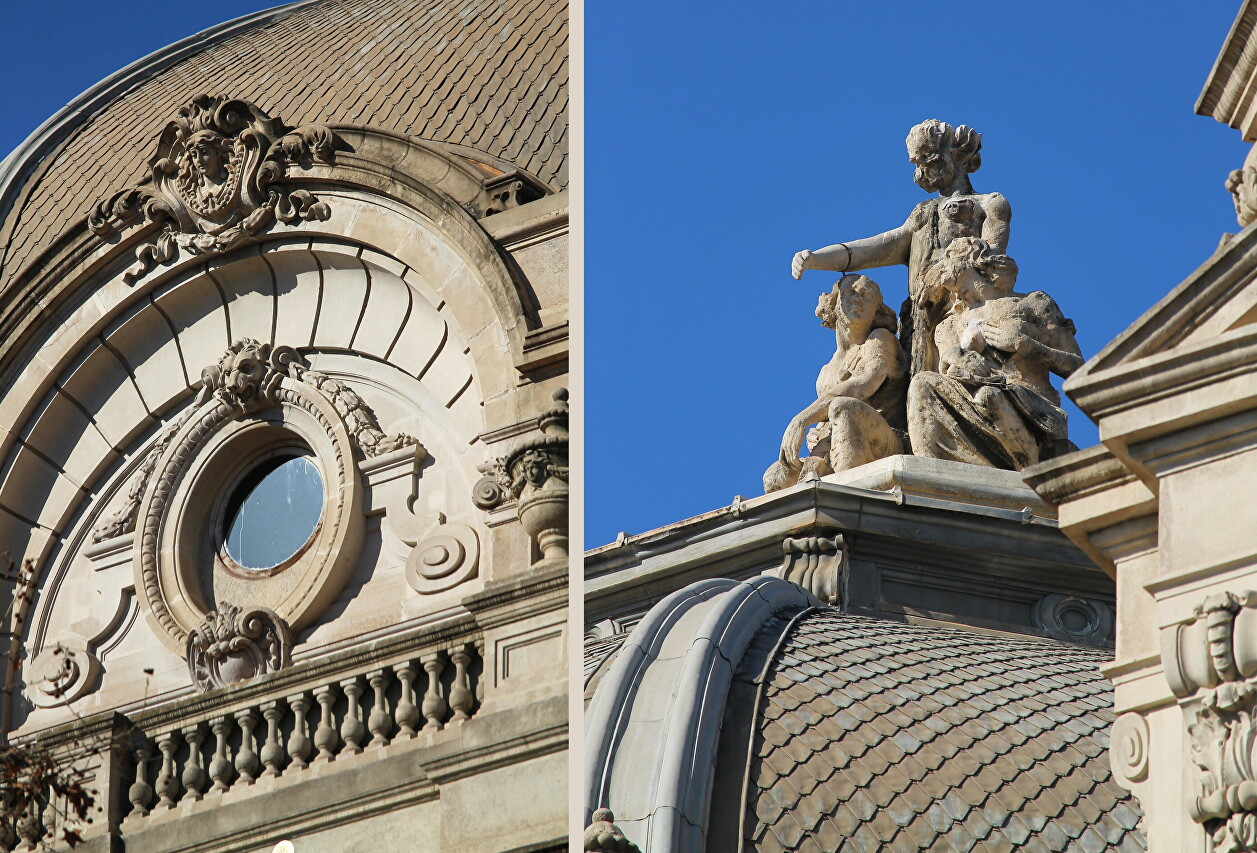
The dome is complemented by two neo-Baroque turrets at the corners of the facade.
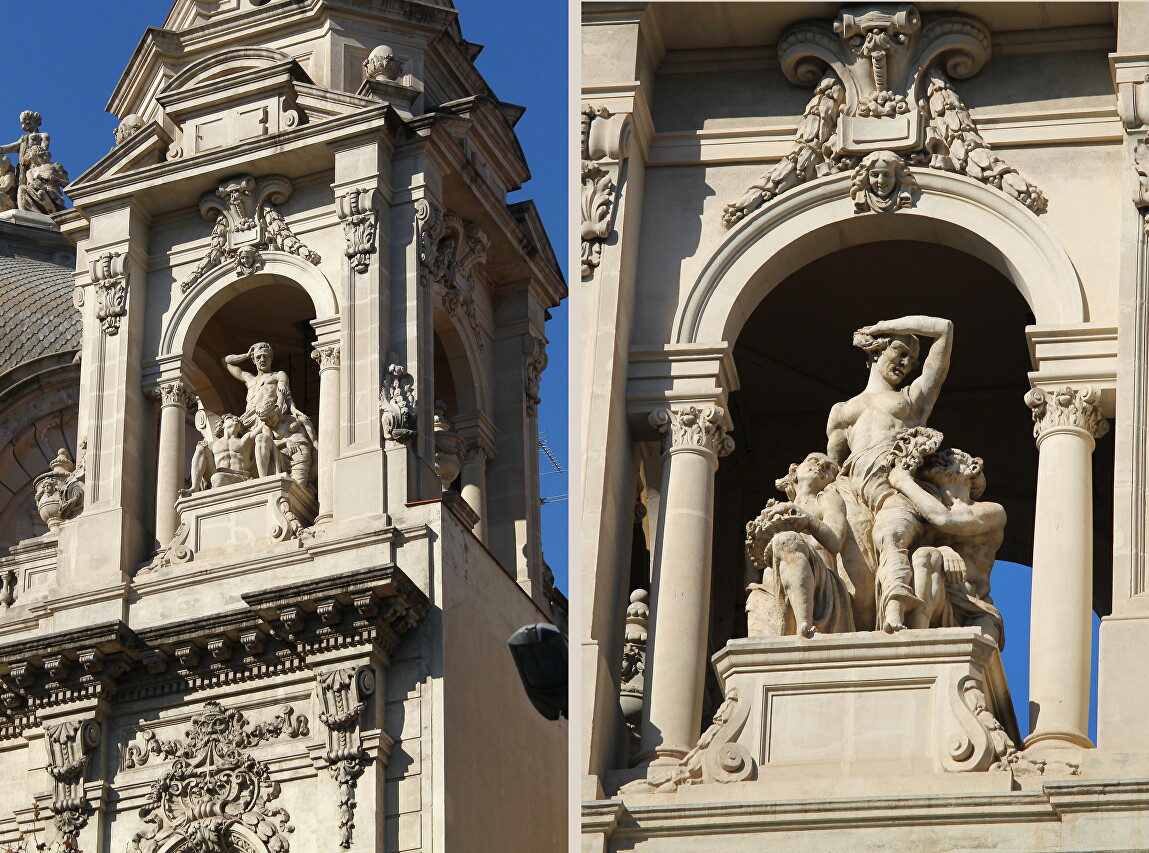
During the Civil War, on March 17, 1938, the cinema was damaged by aerial bombardment. However, the bomb did not hit the building itself, but a truck carrying explosives. The explosion killed many people and caused serious damage to buildings on Gran Via, including the Colosseum.
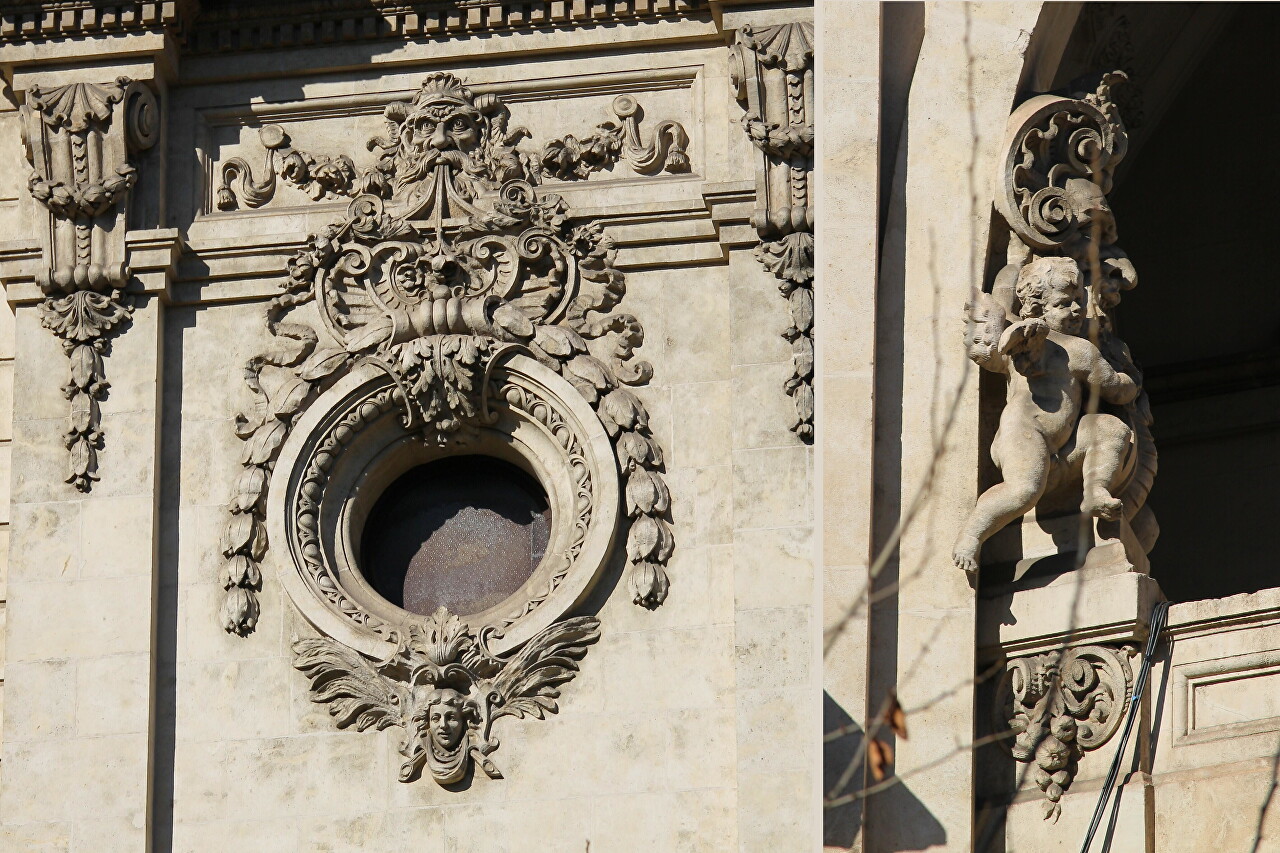
In the second half of the twentieth century, the hall was used for staging various shows, and art exhibitions were placed in the halls. In 2006, film screenings stopped, the hall was transformed into a theater, reducing the number of seats to 1689. Now they organize music concerts and give comedy performances.
